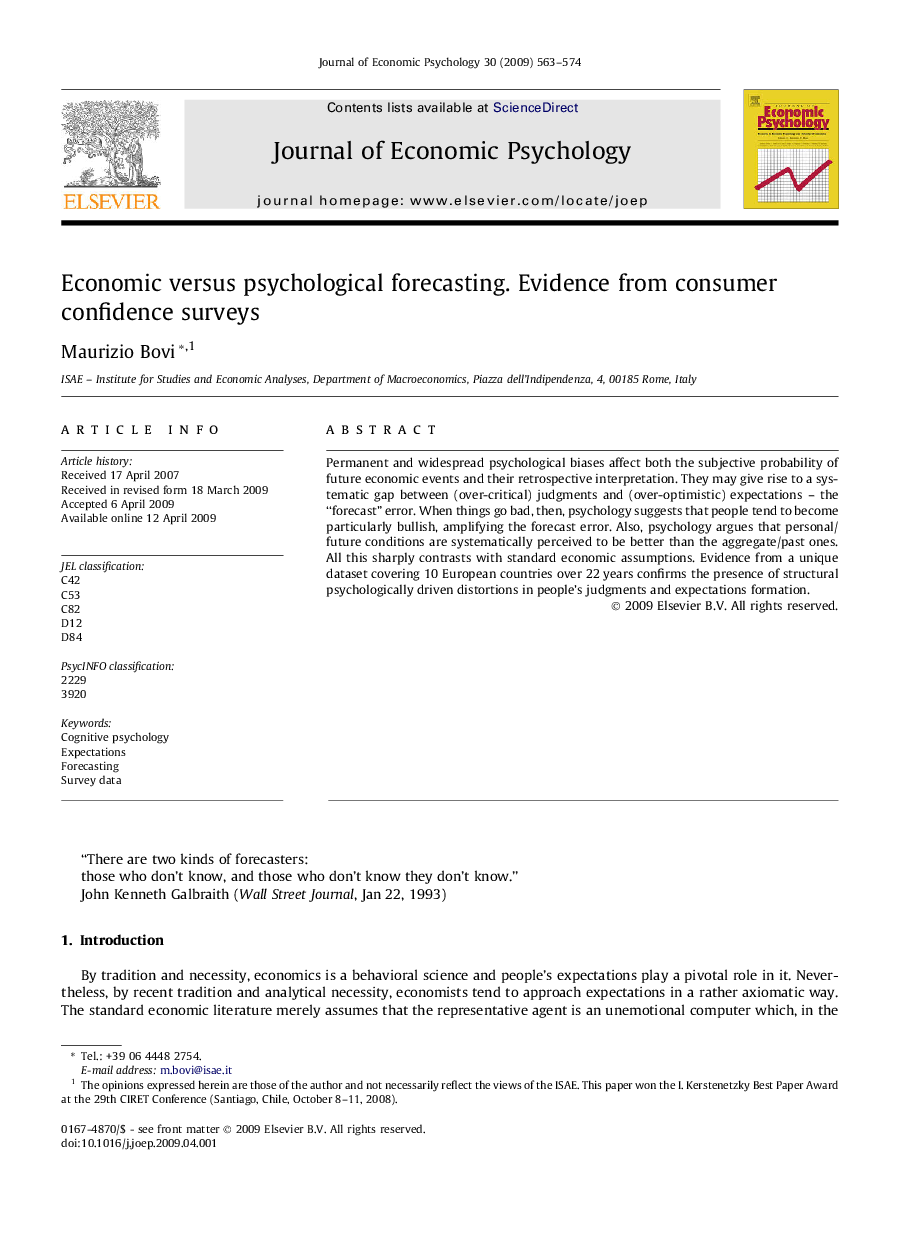| Article ID | Journal | Published Year | Pages | File Type |
|---|---|---|---|---|
| 885410 | Journal of Economic Psychology | 2009 | 12 Pages |
Permanent and widespread psychological biases affect both the subjective probability of future economic events and their retrospective interpretation. They may give rise to a systematic gap between (over-critical) judgments and (over-optimistic) expectations – the “forecast” error. When things go bad, then, psychology suggests that people tend to become particularly bullish, amplifying the forecast error. Also, psychology argues that personal/future conditions are systematically perceived to be better than the aggregate/past ones. All this sharply contrasts with standard economic assumptions. Evidence from a unique dataset covering 10 European countries over 22 years confirms the presence of structural psychologically driven distortions in people’s judgments and expectations formation.
